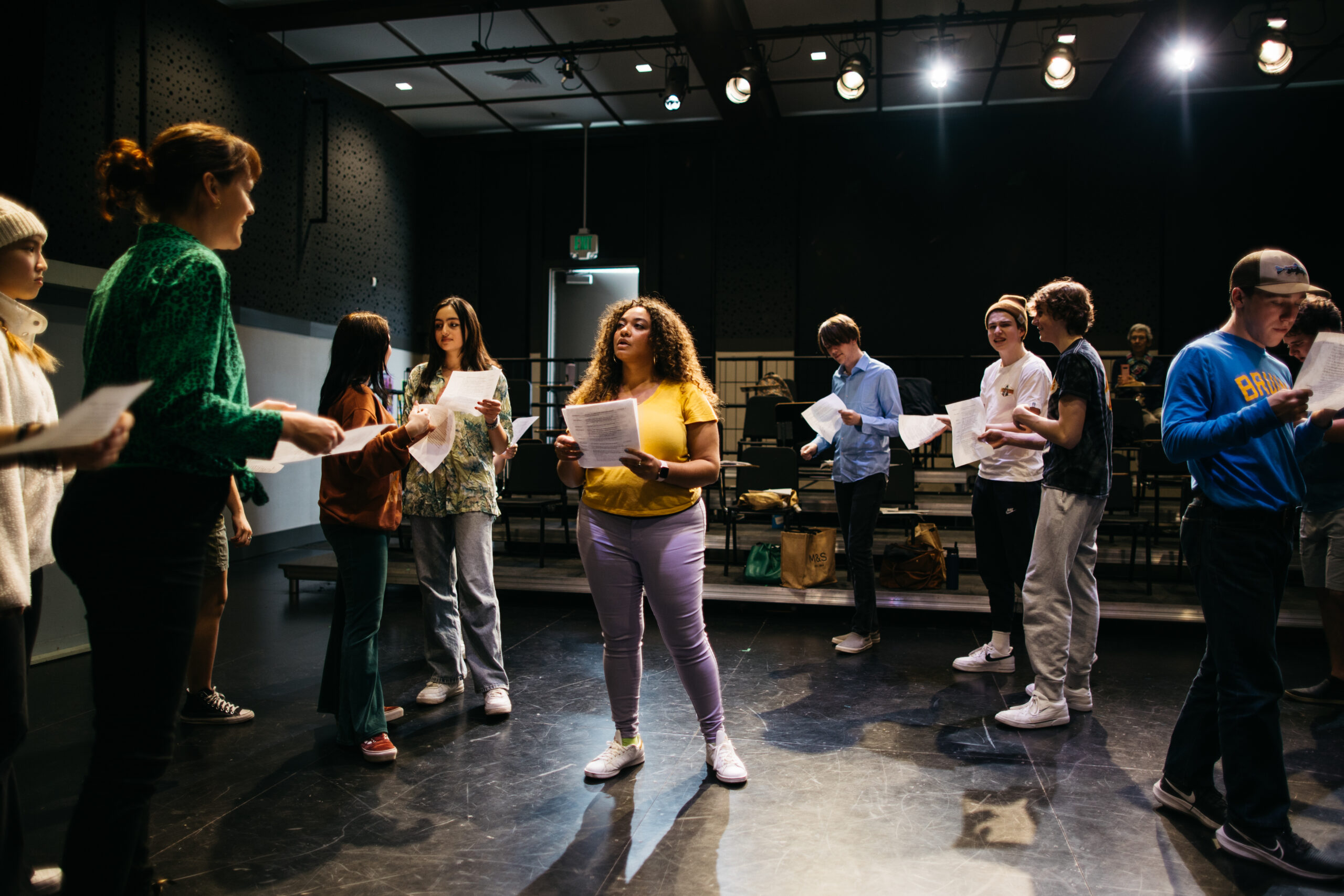The process to establish eligibility to receive grants from the U.S. Federal Government can seem intimidating. There are pre-requisites that an organization needs to have to apply, and these pre-requisites can take a significant amount of time.
This article strives to make the eligibility process a little easier, and offers our best tips for submitting the most competitive application possible.
What does my organization need in order to be eligible for Federal funds?
Due to government legislation, an organization needs to have their 501c3 status and a UEI number from SAM.gov to be eligible to apply for and receive grants for federally funded programs.
Arts Midwest administers a couple of grants that come from the National Endowment for the Arts, which is an agency of the United States federal government. As of 2023, these federally-funded programs are Shakespeare in American Communities, NEA Big Read, and the GIG Fund. To apply for any of these grants, you’ll need to have your 501c3 status and a UEI number from SAM.gov on hand.
If you apply to the National Endowment for the Arts directly, you will still need those same credentials.
Get Your Free Unique Entity Identifier (UEI)
A UEI or Unique Entity Identifier is an ID your organization will need to apply for Federal grants and you can register to get one or look yours up at www.SAM.gov. Click the button below to download our short guide on getting your free UEI.

Work with your local APEX Accelerator
APEX Accelerators exist to help organizations get funding from the federal government, whether it’s for contracts or grants. With over 300 local offices, APEX Accelerators form a nationwide network of dedicated procurement professionals working to help local businesses become eligible for funding. The best part is that they provide no-cost, one-on-one counseling.
APEX Accelerators can be especially helpful in navigating the System for Award Management (www.SAM.gov), where your organization will need to register to be eligible to receive Federal funds.

Consult the Federal Service Desk
Another resource you can take advantage of when you are registering and encounter any problems is the Federal Service Desk (fsd.gov). They can help with any technical issues you may have and assist with the SAM.gov registration process.

10 best practices for strong grant applications
Now that you have your UEI number, you are ready to begin working on your grant application!
Based on our work speaking with thousands of applicants, the following tips represent the key areas where we recommend focusing your efforts.
-
1
Read the guidelines thoroughly
Make sure you read the program guidelines thoroughly. Sometimes the same opportunity that is offered annually can have some small but important changes.
-
2
Determine if the the opportunity is a good fit
Consider if the grant opportunity makes sense to apply for in terms of the goals of the program and the size of the project. Don’t apply for a grant that falls outside of your organization’s mission or expertise that you cannot compensate with partnerships. Finally, make sure that you meet the criteria prior to applying. If you are unsure, contact a program officer and ask for clarification.
-
3
Be as specific as possible
Specificity is key. Be really clear about what you’re going to do, how you’re going to do it, what you expect to accomplish. Who is going to benefit? Make a strong case or “why” behind the program. Develop a budget that clearly helps tell that story. You want your application to be easy for a reviewer, who is often reading dozens or even hundreds of applications, to be able to understand what you are proposing to do. The moment you confuse them, you’ve lost the grant.
-
4
Avoid tentative language
“Might,” “could,” “probably,” and “potentially” are words that should not appear anywhere in your application. Their presence demonstrates that the proposal has not been fully conceived.
-
5
Sourcing your matching funds
Oftentimes, federal grant applications ask what you will be contributing out of your own sources of funds, or matching the grant. These need to be from a non-federal source and can be salaries and wages you pay your staff, cash/expenses the applicant organization will incur as part of the project, other grants that will help sponsor the project, earned revenue (such as ticket sales), or goods/services offered in-kind (free). In-kind contributions are not always eligible for match, so contact the grant administrator for clarification.
-
6
Avoid unallowable expenses
Federal funds cannot be spent on certain things. Refer to our Federal Eligibility Requirements page for more information.
-
7
Make sure that your project budget matches your project description
Many project-based applications need to know how you are planning to spend the grant funds, and potentially, matching dollars from your organization. When you fill out your budget, make sure you cross reference it with what you’re describing in the project description. A mismatch between the budget and description will raise red flags for reviewers.
-
8
Schedule time to talk through your ideas and ask questions of the funder
Don’t leave anything to guesswork! If there’s something you’re unsure about, contact the funder. Getting clarity at the beginning stage can prevent a lot of confusion and potentially make the difference between getting the grant or not.
-
9
Leverage the strength of partners
At least in terms of the grants Arts Midwest offers, we encourage you to not shoulder all the responsibility for every aspect of your proposal. Have a media partner handle outreach, connect with a local Rotary or community-based organization for volunteers, etc. Perhaps your in-person or digital networks have other expertise that you’re not aware of, so put out a call for a specific set of skills you need. It never hurts to ask!
-
10
Back up your statements with data
Offering data points in your application narratives demonstrates thoughtfulness and care went into it. For example, are you hoping to describe the audiences or a geographical region you’re serving? Consider taking a few minutes to review the latest census information at census.gov.
Ready to apply for Federal grants?
Check out our Get Support page to learn more about current grant opportunities offered through Arts Midwest.
Get Support